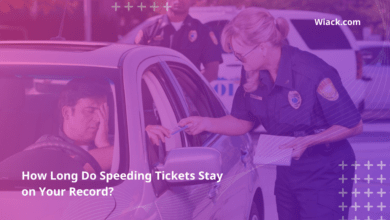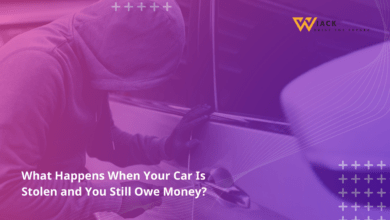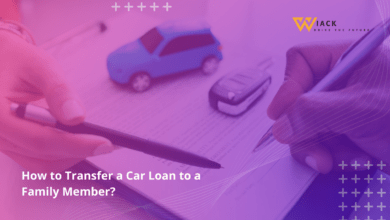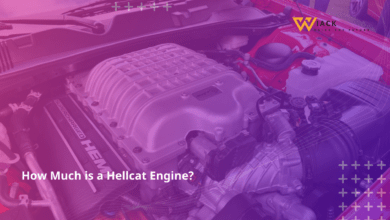Who Gets the Insurance Check When a Car is Totaled?
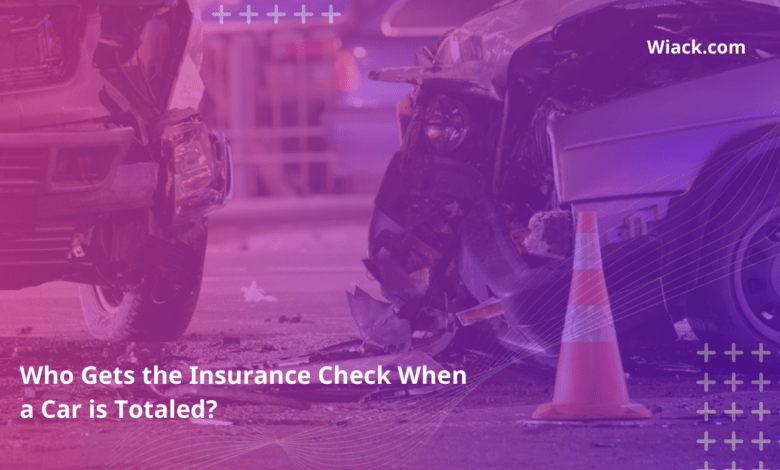
Did you know that approximately 6 million car accidents occur in the United States each year, with about 20% of these resulting in a total loss? This startling statistic highlights the importance of understanding what happens when your car is totaled and who receives the insurance payout. In this comprehensive guide, we’ll explore the intricacies of insurance payouts for totaled vehicles, helping you navigate this complex process with confidence.
Determining Ownership
When a car is totaled, the first step in determining who gets the insurance check is to establish the vehicle’s ownership. This process can be more complicated than it seems at first glance, as there are several scenarios to consider.
The Title Holder
The title holder is typically the legal owner of the vehicle. In most cases, if you own your car outright and are listed as the sole owner on the title, you will be the primary recipient of the insurance check. However, there are exceptions to this rule, which we’ll explore in the following sections.
When you’re the title holder, the process usually unfolds as follows:
- The insurance company assesses the vehicle’s actual cash value (ACV).
- They subtract any applicable deductibles from the ACV.
- The remaining amount is issued to you as a check.
It’s important to note that even as the title holder, you may not receive the full ACV if there are other parties with a financial interest in the vehicle.
The Lienholder
If you’re still paying off a car loan, the lienholder (usually a bank or financial institution) has a legal claim to the vehicle. In this case, the insurance check will typically be made out to both you and the lienholder. Here’s how it usually works:
- The insurance company determines the vehicle’s ACV.
- They issue a check for the ACV (minus any deductibles) to both you and the lienholder.
- The lienholder receives the portion of the check that covers the remaining loan balance.
- If there’s any money left over after paying off the loan, you receive the remainder.
This process ensures that the lienholder’s financial interest is protected while also providing you with any excess funds.
Joint Ownership
In cases of joint ownership, such as when a car is owned by a married couple or business partners, the situation can become more complex. The insurance check may be issued to all parties listed on the title. Here’s what you need to know:
- All parties listed on the title may need to endorse the check.
- The insurance company might require a written agreement from all owners regarding the distribution of funds.
- In some cases, the check may be issued to one owner with the understanding that they will distribute the funds appropriately.
It’s crucial to communicate clearly with all co-owners and the insurance company to ensure a fair and transparent distribution of the insurance payout.
Factors Affecting Check Distribution
Several factors can influence who gets the insurance check when a car is totaled. Understanding these factors can help you navigate the claims process more effectively.
The Policyholder
The policyholder is the person who purchased the insurance policy and is responsible for paying the premiums. In many cases, the policyholder is also the vehicle owner, but this isn’t always true. Here’s what you need to know about the policyholder’s role:
- If the policyholder is also the vehicle owner, they will likely receive the insurance check (subject to any lienholders’ claims).
- If the policyholder is not the vehicle owner, the situation can be more complicated. The insurance company may need to determine who has the insurable interest in the vehicle.
- In some cases, the policyholder may receive the check even if they’re not the owner, with the understanding that they will distribute the funds appropriately.
It’s important to note that being the policyholder doesn’t automatically entitle you to the insurance payout if you’re not the legal owner of the vehicle.
The Named Insured
The named insured is the person or entity listed on the insurance policy. This is often, but not always, the same as the policyholder. Here’s how being the named insured can affect the insurance check distribution:
- If you’re the named insured and the vehicle owner, you’ll likely receive the insurance check (subject to any lienholders’ claims).
- If you’re the named insured but not the vehicle owner, the insurance company may need to investigate further to determine the appropriate recipient of the check.
- In some cases, multiple people or entities may be listed as named insureds. This can further complicate the check distribution process.
Understanding your status as a named insured is crucial when dealing with insurance claims for totaled vehicles.
The Driver at the Time of the Accident
The driver at the time of the accident may or may not have a claim to the insurance check, depending on their relationship to the vehicle owner and the circumstances of the accident. Consider the following scenarios:
- If the driver is also the owner and policyholder, they will likely receive the check (subject to any lienholders’ claims).
- If the driver was borrowing the car with permission, the vehicle owner typically receives the check.
- If the driver was using the car without permission, they may be liable for damages and would not receive the insurance check.
It’s important to note that the driver’s personal auto insurance may come into play if they were driving someone else’s car at the time of the accident.
The Vehicle’s Registered Owner
The vehicle’s registered owner is the person or entity listed on the vehicle registration documents. This is often, but not always, the same as the title holder. Here’s how being the registered owner can affect the insurance check distribution:
- If you’re the registered owner and the title holder, you’ll likely receive the insurance check (subject to any lienholders’ claims).
- If you’re the registered owner but not the title holder (for example, if you’re leasing the vehicle), the situation can be more complex. The leasing company may have a claim to the insurance payout.
- In some cases, the registered owner may be different from both the title holder and the policyholder. This can further complicate the check distribution process.
Understanding your status as the registered owner is crucial when dealing with insurance claims for totaled vehicles.
Common Scenarios
Now that we’ve explored the factors that influence who gets the insurance check when a car is totaled, let’s look at some common scenarios you might encounter.
A Loaned Car
When a totaled car was loaned to someone at the time of the accident, the situation can become complex. Here’s what you need to know:
- The vehicle owner’s insurance typically provides primary coverage, even if someone else was driving.
- The insurance check will usually be issued to the vehicle owner, not the person who borrowed the car.
- If the borrower has their own insurance, it may provide secondary coverage if the owner’s insurance is insufficient.
- The vehicle owner may be responsible for paying any deductibles, even if they weren’t driving at the time of the accident.
It’s important to communicate clearly with both the person who borrowed the car and the insurance company to ensure a smooth claims process.
A Leased Car
Leased vehicles present a unique situation when it comes to insurance payouts for totaled cars. Here’s what typically happens:
- The insurance check is usually made out to the leasing company, as they are the legal owner of the vehicle.
- The leasing company will use the insurance payout to settle the lease agreement.
- If the insurance payout is less than the remaining lease balance, you may be responsible for paying the difference (unless you have gap insurance).
- If the insurance payout exceeds the remaining lease balance, you may be entitled to the excess funds.
It’s crucial to review your lease agreement and insurance policy carefully to understand your rights and responsibilities in the event of a total loss.
A Car Owned by a Business
When a business-owned vehicle is totaled, the insurance check distribution process can be more complex. Consider the following:
- The insurance check is typically issued to the business entity listed as the vehicle owner.
- If the business has multiple owners or partners, they may need to agree on how to use the insurance funds.
- In some cases, the business may have a loan on the vehicle, in which case the lienholder would need to be paid first.
- If an employee was driving the vehicle at the time of the accident, they generally wouldn’t receive the insurance check unless they have an ownership stake in the business.
Businesses should have clear policies in place regarding vehicle use and insurance claims to avoid confusion in the event of a total loss.
A Car Inherited by Multiple People
When a car is inherited by multiple people and subsequently totaled, the insurance check distribution can become complicated. Here’s what you need to know:
- The insurance check may be issued to all inheritors listed on the title.
- All inheritors may need to agree on how to distribute the funds.
- If the inherited vehicle had a lien, the lienholder would need to be paid first.
- In some cases, the executor of the estate may be responsible for handling the insurance claim and distributing the funds.
Clear communication among all inheritors and with the insurance company is crucial in these situations.
A Car Involved in a Hit-and-Run
In the unfortunate event of a hit-and-run accident that results in a totaled car, the insurance check distribution process can be affected. Here’s what to expect:
- If you have uninsured motorist coverage, your insurance company may pay out as if the at-fault driver had been identified.
- The insurance check would typically be issued to you as the policyholder and vehicle owner (subject to any lienholders’ claims).
- If the hit-and-run driver is later identified, your insurance company may pursue them for reimbursement.
- In some cases, you may need to pay your deductible upfront, but it could be refunded if the at-fault driver is found.
It’s important to report hit-and-run accidents to the police and your insurance company as soon as possible to protect your rights and ensure a smooth claims process.
What to Do If You’re Involved in a Totaled Car Accident
If you find yourself in a situation where your car is totaled, knowing the right steps to take can help ensure you receive the appropriate insurance payout. Here’s a guide on what to do:
Contact Your Insurance Company
The first step after any accident is to contact your insurance company. Here’s what you should do:
- Call your insurance provider as soon as possible after the accident.
- Provide them with all relevant details about the accident.
- Ask about the claims process and what documentation you’ll need to provide.
- Inquire about rental car coverage if you need temporary transportation.
Remember, the sooner you contact your insurance company, the sooner they can start processing your claim.
Gather Information and Documentation
To support your insurance claim, you’ll need to gather various pieces of information and documentation. This may include:
- Police reports from the accident
- Photographs of the damage to your vehicle
- Medical reports if you or your passengers were injured
- Witness statements, if available
- Your insurance policy documents
- Vehicle registration and title documents
Having all this information readily available can help expedite the claims process and ensure you receive a fair payout.
Understand Your Rights and Options
When dealing with a totaled car insurance claim, it’s crucial to understand your rights and options. Consider the following:
- You have the right to know how the insurance company determined your car’s value.
- You can dispute the insurance company’s valuation if you believe it’s unfair.
- You may have the option to keep your totaled car for salvage value, which would be deducted from your payout.
- If you have gap insurance, you may be covered for any difference between your car’s value and what you owe on your loan or lease.
Don’t hesitate to ask your insurance company or a legal professional about your rights and options in your specific situation.
Negotiate with the Insurance Company
If you’re not satisfied with the initial offer from your insurance company, you have the right to negotiate. Here’s how to approach this:
- Research the value of your car using resources like Kelley Blue Book or NADA Guides.
- Gather evidence of your car’s condition before the accident, such as maintenance records or recent upgrades.
- Present your findings to the insurance company and explain why you believe their offer is insufficient.
- Be prepared to compromise, but don’t accept an offer that you believe is unfair.
Remember, negotiation is a normal part of the insurance claims process, and it’s your right to advocate for a fair payout.
Seek Legal Advice if Necessary
In some cases, you may need to seek legal advice to ensure you receive a fair insurance payout. Consider consulting with an attorney if:
- You’re having difficulty negotiating with the insurance company.
- There are complex ownership issues involved (e.g., multiple inheritors or business ownership).
- You believe the insurance company is acting in bad faith.
- There are disputes about who was at fault in the accident.
An experienced attorney can help you navigate the complexities of insurance law and ensure your rights are protected throughout the claims process.
In conclusion, understanding who gets the insurance check when a car is totaled involves considering various factors such as vehicle ownership, insurance policy details, and the specific circumstances of the accident. By familiarizing yourself with these factors and following the steps outlined in this guide, you can navigate the claims process more effectively and ensure you receive a fair payout for your totaled vehicle. Remember, knowledge is power when it comes to dealing with insurance companies, so don’t hesitate to ask questions and advocate for your rights throughout the process.
Get the latest car news, reviews, and prices at Wiack.com. Your one-stop destination for all things automotive.

